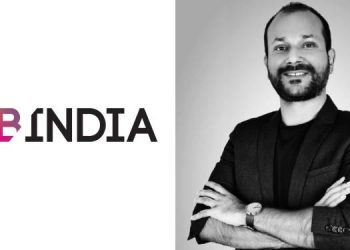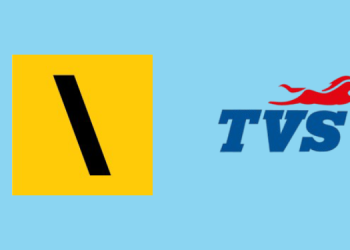The IAA Voice of Change initiative saw two panel discussions in Chennai on August 31, 2023 on “Gender Portrayal from 30 Seconds to 3 Hours”.
A session at the Madras Management Association hosted by the Chennai industry body was moderated by Megha Tata, CEO, Cosmos Maya and Co-chairperson, Women Empowerment Committee, India Chapter of IAA.
The panellists were Latha Menon, Producer and Director, Mindscreen Cinemas; Kumarappan AL, Senior AVP – Marketing, TAFE; Chockalingam S, Co-Founder and Creative Director, OPN Advertising; Srinivasan Swamy, CMD, RK Swamy; and Navneet Virk, Senior Partner and Creative Director, RK Swamy. The panel delved deep into persisting problems of gender bias and how the narrative can be shifted.
On the objective behind IAA Voice of Change, Tata said, “The main objective of the same was how women are getting represented in the advertising of the country because it gets positioned subconsciously and frankly consciously and embedded in our minds. When you look at a commercial which is constantly telling you a message, whether you like it or not it gets imprinted in your mind. For us, that’s a very integral part as an industry which can make a difference – it is a moral responsibility for us and all the stakeholders of the industry to take the initiative and to make that change. We partnered with UNICEF, we onboarded Geena Davis Institute on Gender in Media to undergo a research study. As part of that, we took about 1,000 most popular ads on TV and digital platforms. We identified certain parameters and understood how women are represented in our commercials. For me, the outcome was not surprising. The good thing is that there had been lot of movement. Has the needle moved enough? I don’t think so.”
The panel discussion began with speakers sharing their views on Voice of Change and the need for it today.
Speaking about the report titled ‘Gender Bias and inclusion in advertising in India’, Chockalingam said, “The report was actually like a mirror for me. Usually, ads are mirrors of the society but this study actually mirrors what we as ad creators are thinking – consciously or unconsciously. When I saw that, I didn’t like the image that was there. Knowingly or unknowingly, I have contributed to a lot of messaging to that bias and stereotyping. The first point is how do we change. You can’t change the image; you have to change the self. I have to start changing my thinking, before I start influencing others. Having said that, as a creator who works for an ad agency, we will be having a lot of work pending and we will be trying to crack that idea. We are constantly trying to work on that. Finally, we get the ad approved and release it. What happens is, I have an agenda of getting the ad out, client has got a different agenda of sales, the branch head of the agency will have an agenda of the billing which we are going to make out of the work. All the agendas are different. It is a task to fit in the agenda of not stereotyping.”
Kumarappan added, “We cannot see ads in isolation, it’s a piece of the society. It can either be a reality or aspiration – a majority of the ads, 90 pc, will be reality and the rest will be aspiration. Even the ads produced by TAFE are also of that sort because it has to connect with the consumers. The ads are produced for a purpose to sell the goods and services, it has to be relevant and connect with the society. There can be an ideology, but we should always see what is the societal aspiration – if you are able to connect with both, then a good ad is produced which will be successful in terms of commercial and societal aspects.”
Virk said, “I do feel that we are on the right direction as there are brands like Dove, Tanishq who are driving the change. A lot has been spoken, it’s the time to end conversations and start the actions around it. We should put a checklist together on what we can do in day-to-day life as we move forward. The first point is how the narrative of the campaign will resonate with the consumer and it is very important to understand different layers as there are a lot of complexities surrounding women. In terms of the messaging it is very important on how we are portraying the women despite the category of brand they are featured in.”
Steps to Change
Menon said, “We have been exposed to many challenges when we entered the field of advertising. We all came to advertising when there were not many women there. We have seen the role of women changing as we have gone up to higher positions. We all are talking about advertising; I would like to talk about the world in general on what women and men are exposed to while growing up which is what is constantly reflected in advertising. In 1995 in the UN Women conference in Beijing, the main thing they said was that the status of the nation is very closely tied to its female citizens. And if you do not treat your female citizens well, it reflects in the work you do and the economy that develops. Women are being represented in government, corporate bodies, they are going globally. While all those are happening, we have many perennial issues like domestic violence, sexual harassment etc. These things also need to be corrected. If we want to create a change at the larger level or even at a smaller level, these things have to be changed.”
Swamy said, “It is no longer possible to get away with unequal treatment of women in communication. It is going to be very difficult to get away with demeaning portrayal of women. Most large companies are already doing it, they are very conscious and there are a set of small entrepreneurs who are actually sexists who want to portray women in a demeaning manner, but hopefully that small tribe will vanish with time.”
On the tangible steps to be taken to make the change happen, Chockalingam said, “I believe a lot of unlearning has to happen first. For example, in a movie if there is a song that happens for a hero entry, we will have many songs that come to our mind. But that is not the case with female leads. We need to unlearn which is happening in movies and ads, but a lot more can be done. In ad agencies, there are a lot of women bosses, still knowingly or unknowingly we have our biases and stereotyping. We should change that, and it is a collective effort.”
“We need to be gender agnostic. While we are doing a casting, we need to look into who is fitting for that certain role rather than identifying how that individual should be,” Tata added.
Feedback: [email protected]

















